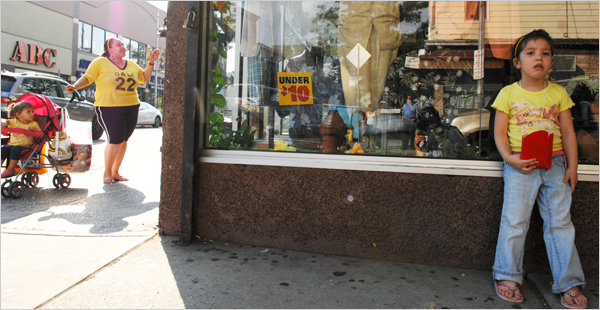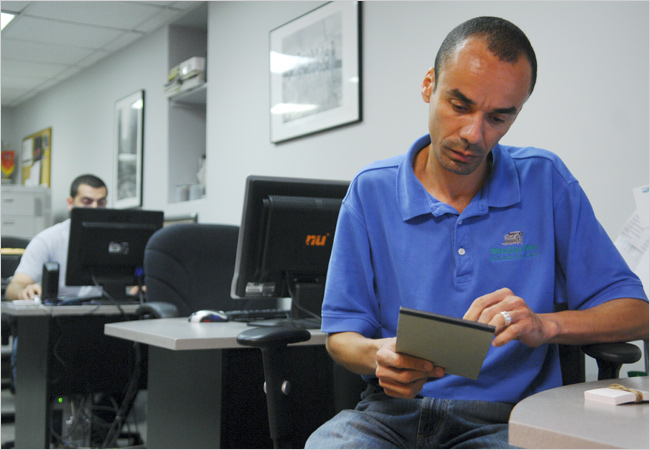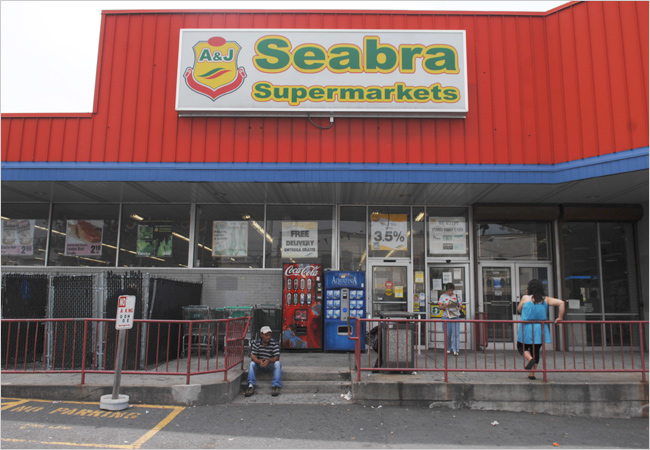| Want to send this page or a link to a friend? Click on mail at the top of this window. |
More Special Reports |
| Posted August 1, 2008 |
 |
|
| PHOTOGRAPHS BY ROB BENNETT FOR THE NEW YORK TIMES | |
| The winning ticket in a $126 million jackpot was sold in Newark's Ironbound neighborhood, prompting rumors that a Brazilian immigrant had bought it. | |
|
|
|
| NEWWARK JOURNAL | |
|
|
|
| A $126 Million Rumor, Racing From New Jersey to Rio |
| By KIRK SEMPLE |
 |
 |
| Leonardo Ferreira, a Brazilian Voice reporter, and the store that sold the winning ticket. |
| Wehaitians.com, the scholarly journal of democracy and human rights |
| More from wehaitians.com |